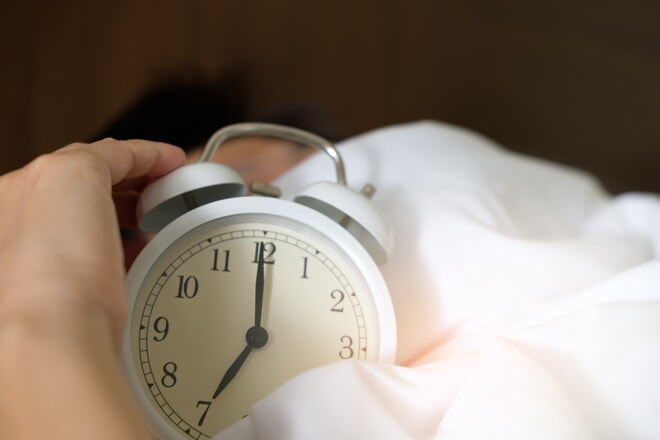Daylight Sleepy Time: How to Manage the Time Change
Mar 1, 2022

Love it or hate it, the time change from Daylight Saving Time and Standard can upset our normal sleep patterns. Your body's natural 24-hour sleep cycle — called your circadian rhythm — is set by sunlight. Resetting your clock doesn't mean your body is ready for a reset too.
But don't despair! The springtime change, which is on March 13 this year, doesn't have to disrupt your sleep. You can start a plan today to make the transition easier on your body.
A Smooth Time Change Transition
The starting place for making a smooth transition lies in healthy sleep habits. You can start making good sleep choices right away and throughout the year. Healthy sleep is an important pillar of a healthy lifestyle year-round. "Healthy sleep promotes physical and mental well-being and boosts our daytime performance," says Dr. Kam Atwal, a provider with Adventist Health Medical Group.To establish healthy sleep, Dr. Atwal recommends:
- Creating a consistent sleep schedule.
- Sleeping enough every night-that means seven to nine hours for most adults.
- Incorporating healthy eating and exercise during the day.
- Having a healthy bedtime routine, which includes avoiding alcohol, tobacco, caffeine and large meals for several hours before bedtime.
Heading into a time change with good sleep habits will make the transition easier. Dr. Atwal recommends adjusting your sleep schedule a little each day. "Your internal body clock will have an easier time adjusting to the one-hour change over a few days," Dr. Atwal advises.
After the Time Change
Dr. Atwal also offers some tips for coping with any problems after the time change:- Spend time in outdoor light in the morning to help you feel alert and reset your natural internal clock.
- Fight daytime sleepiness with a little caffeine (up to 2 cups of coffee) or exercise to stimulate alertness.
- Take short naps of less than 30 minutes before 3 p.m.
- Use a 1 or 3-milligram dose of melatonin 60 to 90 minutes before bedtime to help cue your body to sleep.
While some find the time change difficult, with a little planning you can make sure you sail through the change with little impact on your daily — and nightly — life.
Infographic: How Sleep Disorders Affect Your Heart
Sleep problems can be triggered by time change but there are also many sleep disorders that can affect our sleep health. Learn more about how sleep disorders may affect your heart health in the infographic below.
Related articles

The Gut-Brain Connection: How Your Mental Health Affects Your Gut Health
February 6, 2024

Gut-Healthy Foods: Eating for Your Digestive Health
February 6, 2024

How Looking After Yourself Benefits Your Whole Family
February 5, 2024
